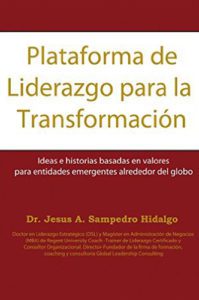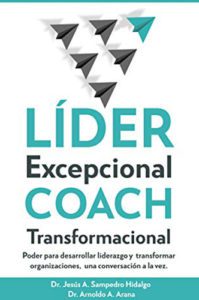
Practicing Feedquestioning in Coaching
April 15, 2025Leaders know how to communicate. They know how to weave conversations and lead them toward the transformative and meaningful. In this era of organizational speed, the leader who achieves conversational effectiveness and manages to instill conversational skills in their people stands out in their management. Paradoxically, the author Javier Martinez refers to the little attention that many organizations today pay to the conversational phenomenon and says that “In any institution, exhaustive control is kept of raw materials, products, data circulating through networks and even of people, but rarely of the conversations between those people.” Conversation is demonstrative of human intelligence, and the challenge in leadership is to optimize it. In this sense, the leader must position themselves as someone capable of establishing, sustaining and facilitating coherent, intelligent, effective and transformative dialogues; whether in the real or virtual cosmos, or in a mixture of both.
According to Martinez himself, “Conversation is not about exchanging information to make decisions. Conversation, as Maturana proclaims, is about constructing and transforming reality together with others.” When we converse, we open up universes through exploration, generate options through creativity, challenge ourselves to better states of existence, close processes toward coexistence, achieve goals; in short, we nourish the culture in which we operate. From this perspective, conceiving conversation as a competency is a decisive factor for leadership management and requires various contributors, all of which converge on the topic of leadership coaching, such as:
- Active listening, where the important thing is to take into account the interests and needs of the other person, in our case, the collaborator-coachee.
- Being present during conversations, even amidst so many time demands and the tendency to multitask.
- Asking powerful questions, sensitively structuring the flow of information so that the potential of the collaborator-coachee is extracted and enhanced.
- Effective mentoring, generated from a mutual intention to conduct progressive, daily checks and balances toward achieving agreed goals.
- A sense of honor and motivation, nurturing through words the expectation of being affirmed and inspired toward the best possible performance.
- Among others.
Conversation is, therefore, more than a random event; it is a series of intentional exchanges that have the potential to generate well-being and transformation. The sum of transformative conversations impacts the overall sense of organizational coherence, and therefore must be taken seriously for the optimization of leadership management.
How are your conversations going? What is the conversational culture like in your organization?
References:
- Lifeforming Leadership Coaching, (2012) Certification Manual.
- Martínez Aldanondo, J. (2004) The Role of the Tutor in Virtual Learning. (p. 9). Retrieved from the Internet on June 25, 2015, from http://www.uoc.edu/dt/20383/index.html
Published by Dr. Jesus A. Sampedro Hidalgo in 8




 Monday through Friday is where most of the action in a leader’s life takes place; it is there where knowledge is transformed into action, energy is invested, creativity emerges, and faith is tested.
Monday through Friday is where most of the action in a leader’s life takes place; it is there where knowledge is transformed into action, energy is invested, creativity emerges, and faith is tested. Presenta a través de siete propuestas progresivas y complementarias un análisis práctico del vital proceso para gestionar la visión como factor esencial en el ejercicio del liderazgo.
Presenta a través de siete propuestas progresivas y complementarias un análisis práctico del vital proceso para gestionar la visión como factor esencial en el ejercicio del liderazgo. Would you like your organization’s culture to constantly ignite the empowering spark in your people, imbue them with the desire to become talent producers, and turn your supervisors and managers into agents of change?
Would you like your organization’s culture to constantly ignite the empowering spark in your people, imbue them with the desire to become talent producers, and turn your supervisors and managers into agents of change?
 Through seven progressive and complementary proposals, it presents a practical analysis of the vital process for managing vision as an essential factor in the exercise of leadership.
Through seven progressive and complementary proposals, it presents a practical analysis of the vital process for managing vision as an essential factor in the exercise of leadership. How important is it for leaders to build a mature, stable, and firm character as a foundation for their development as leaders? How important is character in the effectiveness of a leader’s management?
How important is it for leaders to build a mature, stable, and firm character as a foundation for their development as leaders? How important is character in the effectiveness of a leader’s management? This book presents values as the foundation of leadership and describes how six values:
This book presents values as the foundation of leadership and describes how six values: New Thinking on Leadership brings together the latest thinking from around the world to empower practitioners and academics to turn around what has been called ‘the leadership crisis’.
New Thinking on Leadership brings together the latest thinking from around the world to empower practitioners and academics to turn around what has been called ‘the leadership crisis’.



 Code of honor
Code of honor Do you want to harness King Solomon’s ancient wisdom to improve your leadership skills?
Do you want to harness King Solomon’s ancient wisdom to improve your leadership skills? The book “How to become a leader:
The book “How to become a leader: 
 Este libro presenta los valores como fundamento del liderazgo y describe cómo seis valores:
Este libro presenta los valores como fundamento del liderazgo y describe cómo seis valores: ¿Qué tan prioritario es para los líderes construir un carácter maduro, estable y firme como base para su desarrollo como líder? ¿Cuál es el peso del carácter en la efectividad de la gestión del líder?
¿Qué tan prioritario es para los líderes construir un carácter maduro, estable y firme como base para su desarrollo como líder? ¿Cuál es el peso del carácter en la efectividad de la gestión del líder? ¿Le gustaría que la cultura de su organización encienda constantemente la chispa empoderadora de su gente, les impregne con anhelos de convertirse en reproductores de talentos, y convierta a sus supervisores y gerentes en agentes de cambio?
¿Le gustaría que la cultura de su organización encienda constantemente la chispa empoderadora de su gente, les impregne con anhelos de convertirse en reproductores de talentos, y convierta a sus supervisores y gerentes en agentes de cambio?